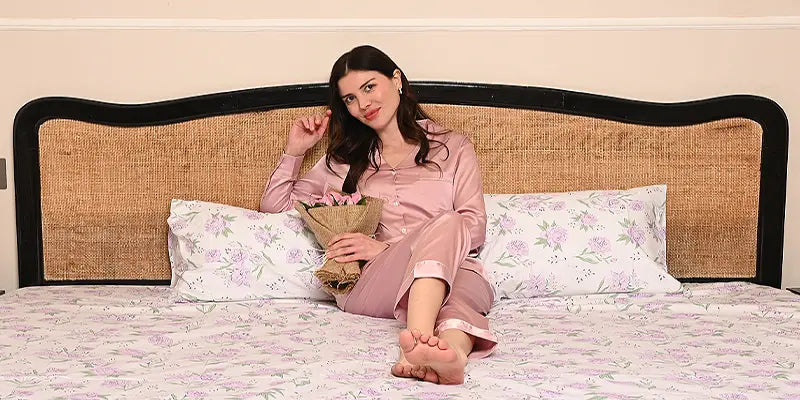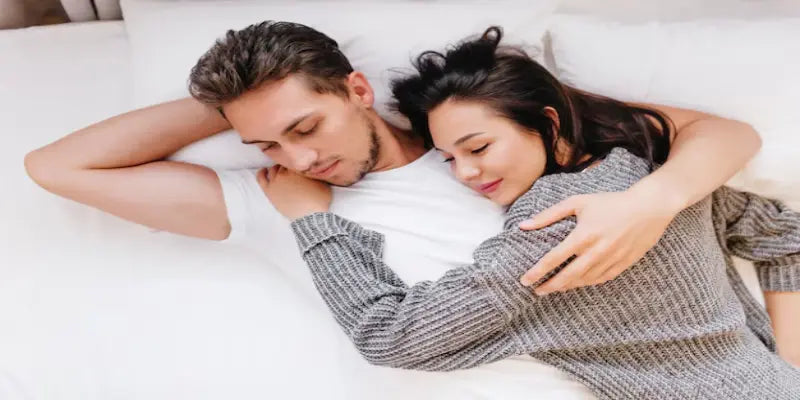
How to Stop Snoring
Snoring is something many of us have experienced at one point or another. For some, it is embarrassing, for others it doesn’t exist until they share bed with someone. While it may be harmless, it can affect the quality of your sleep, disturb your partner and even lead to more serious health issues.
Luckily, there are various snoring treatment options that can help reduce this common problem, from simple lifestyle changes to more advanced medical solutions. In this blog, we’ll learn some effective tips on how to reduce snoring, therapy devices to stop snoring and surgical methods available to help you sleep soundly through the night.
Why Do We Snore?
Snoring occurs when the airflow through your mouth or nose is partially obstructed while you sleep. This leads to vibrations in your throat, producing the sound we know as snoring. Several factors can contribute to this blockage, such as nasal congestion, obesity, sleep position, and even alcohol consumption.
How to Stop Snoring Naturally
There are various tips you can follow to stop snoring, some of these are:
Change Your Sleep Position
One of the simplest and most effective ways to reduce snoring is by changing how you sleep. Sleeping on your back causes your tongue to fall backward into your throat, which can partially block your airway and lead to snoring. Sleeping on your side, on the other hand, can help keep your airway clear.
Try sewing a small pocket onto the back of your pajamas and placing a tennis ball inside. This will encourage you to sleep on your side, helping to prevent snoring.
Maintain a Healthy Weight
Excess weight, especially around the neck and throat area, can put pressure on your airways, leading to snoring. If you’re carrying extra pounds, even a modest weight loss can significantly reduce snoring by opening up the airways and making breathing easier during sleep.
Regular exercise and a balanced diet can not only help you lose weight but also improve your overall health, making it easier to breathe while you sleep.
Stay Hydrated
Dehydration can lead to the thickening of mucus in your nose and throat, making snoring more likely. To stop snoring immediately, try drinking plenty of water throughout the day. This keeps the mucus in your airways thin and helps reduce snoring sounds. Aim for 8-10 glasses of water a day, especially if you live in a dry climate or are active.
Clear Nasal Passages
If you suffer from nasal congestion or allergies, this can contribute to snoring by blocking the airflow through your nose. A snoring treatment that many find helpful is using a saline nasal spray before bedtime to clear your nasal passages.
Alternatively, using a humidifier in your bedroom can add moisture to the air, preventing your nasal passages from drying out and becoming blocked. Consider using an over-the-counter decongestant or nasal strips to help clear your nasal passages before going to bed.
Avoid Alcohol and Sedatives
Alcohol and sedative medications relax the muscles in your throat, which can increase the likelihood of snoring. For a quick fix on how to stop snoring immediately, avoid alcohol or sedatives at least 3 hours before going to bed. If you enjoy a nightcap, make sure to enjoy it early in the evening to give your body time to process it before bedtime.
Practice Good Sleep Hygiene
Sometimes, snoring can be related to poor sleep habits. Going to bed at irregular hours or not getting enough rest can lead to deeper, more intense snoring. By practicing good sleep hygiene and aiming for 7-9 hours of sleep each night, you can help reduce snoring over time.
Stick to a consistent sleep schedule, avoid heavy meals before bed, and create a relaxing bedtime routine to set yourself up for a restful night of sleep.
How to Stop Snoring Using Therapy Devices
To stop snoring using therapy devices, here are some simple options:
CPAP (Continuous Positive Airway Pressure)
This device is the most common for people who snore due to sleep apnea. It has a mask that covers your nose or mouth, gently blowing air to keep your airways open while you sleep. This helps prevent snoring by keeping your throat clear of blockages.
Mandibular Advancement Devices (MADs)
These are mouthpieces that slightly push your lower jaw forward to help keep your airway open. They are easy to use and are often recommended for people whose snoring is caused by a relaxed tongue or soft tissues in the throat.
Nasal Strips or Dilators
These are small devices that stick on the outside or go inside your nose. They help open up the nasal passages, making it easier to breathe through your nose instead of your mouth, which can reduce snoring.
Positional Therapy Devices
Some people snore when they sleep on their back. These devices encourage sleeping on your side, which can stop snoring for some people.
Surgical Treatment Options to Stop Snoring
There are very few snoring cases in which surgical treatments are required. Most cases are treated with lifestyle changes and non-invasive treatments.
These are some of surgical options available for severe cases:
Uvulopalatopharyngoplasty (UPPP)
This is one of the most common surgeries for snoring. UPPP involves removing excess tissue from the throat, including the uvula (the small flap of tissue at the back of the throat), part of the soft palate, and sometimes tonsils. By widening the airway, it helps reduce or eliminate snoring. This procedure is often performed on patients with sleep apnea as well.
Genioglossus Advancement (GA)
This surgery targets the tongue muscles. In this procedure, a small part of the jawbone is repositioned to help keep the tongue from collapsing backward, which can obstruct airflow and cause snoring. By stabilizing the tongue, it prevents airway blockage.
Laser-Assisted Uvulopalatoplasty (LAUP)
LAUP is a minimally invasive procedure that uses a laser to remove part of the uvula and some tissue from the soft palate. The laser also tightens the remaining tissue, helping to prevent snoring by reducing the vibrations that cause the sound.
Radiofrequency Tissue Ablation (Somnoplasty)
Somnoplasty uses radiofrequency energy to shrink excess tissue in the soft palate and uvula. This procedure is less invasive than UPPP, with less pain and a shorter recovery period.
Palatal Implants (Pillar Procedure)
In this procedure, small, flexible implants are inserted into the soft palate to stiffen the tissue and prevent it from vibrating during sleep. It’s a relatively simple, outpatient procedure that takes only about 30 minutes.
Conclusion
If you’ve been wondering how to stop snoring immediately, you don’t have to suffer in silence. From simple lifestyle changes like adjusting your sleep position to more involved treatments like a CPAP machine, there are plenty of ways to tackle the problem.
Consistent effort is key when it comes to reducing snoring and improving your sleep quality. Whether you’re looking for an instant fix or a long-term solution, these tips can guide you toward a quieter, more restful night.








